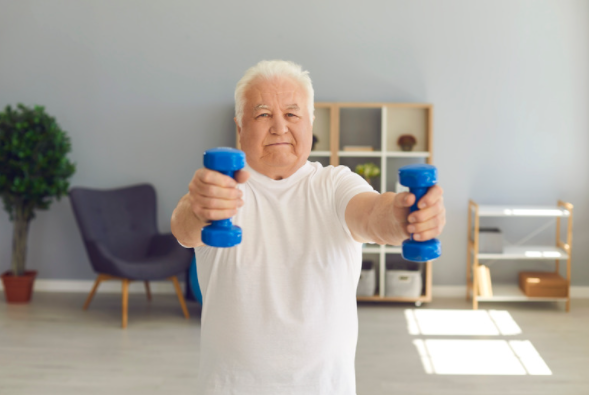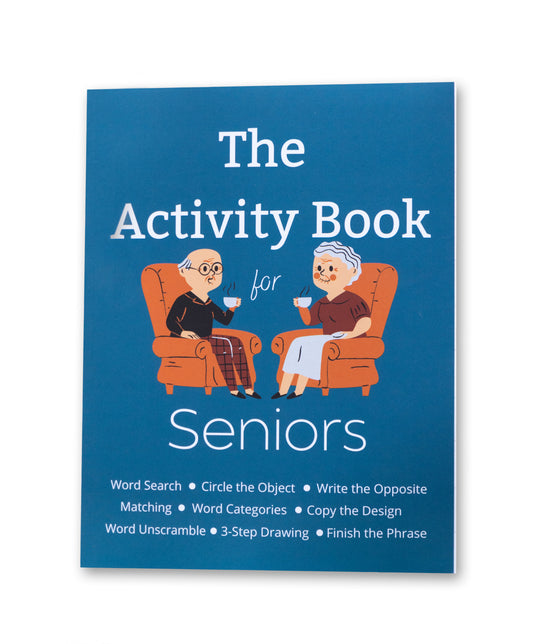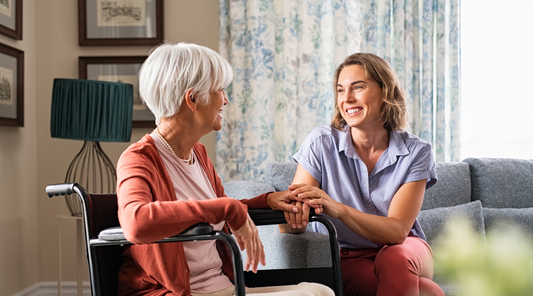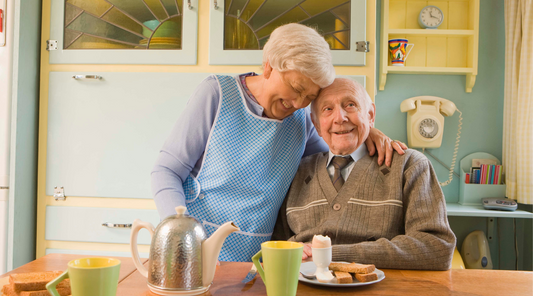
Exercises for Seniors with Dementia
Share
Why does exercise help dementia?
When it comes to promoting thinking skills and memory, exercise is the #1 power tool. Not only does it promote brain function, but it helps strengthen the body which helps prevent falls. Getting cardio exercise during the day helps promote sleep at night. Getting a good night’s sleep helps the brain clear out toxins aiding in brain recovery. Regular exercise is also beneficial in protecting against many chronic diseases.
It is good to have a variety of types of exercises, such as cardio, strengthening, and stretching, in a person’s routine. Even housekeeping tasks, such as sweeping a floor or folding laundry help provide physical activity. Walking is always a great form of exercise also.
Why does my loved one with dementia not want to exercise?
When someone has memory loss, they often lose motivation to exercise, and it becomes the caregiver’s responsibility to help the senior engage in an exercise routine. For some seniors, after doing an exercise routine enough times they may be able to independently incorporate it into their day. However, for most, it will never be an activity that they can engage in unless prompted to by a caregiver. In order to promote the greatest independence and carryover in an exercise routine, here are some suggestions:
10 tips for exercising someone with dementia
- Keep the number of exercises limited. If just starting an exercise routine, even just a few exercises are beneficial.
- Do the exercises in the same order every time
- Do them in the same place each time
- Initially participate in the exercise routine with them, providing demonstration, as well as clear and simple cues.
- If they aren’t doing it quite right, that’s okay, continue to give positive feedback for participating.
- Incorporate the exercises into a daily routine, complete the exercises at the same time each day. Having the daily routine posted can help the senior predict what comes next.
- To help keep them focused, try to keep chit-chat out of the exercises and save it till you’re finished.
- Avoid over-correcting them and saying words like “Don’t.” Instead, gently cue them by modeling the correct techniques.
- Give positive feedback for them participating. You want them to feel successful for all attempts made.
- Following simple pictures or figures of the exercises help the senior to become more independent in doing the exercises.
Standing exercise routine for seniors with dementia | Easy
If your loved one uses a walker, cane, or is unsteady on their feet, try having them complete the following exercise routine while stabilizing at the kitchen sink. If they are a little unsteady you will want to stand next to them to ensure they are safe. If the senior has good balance, standing without holding on to something will be the most challenging. Exercises should be completed pain-free. Try smaller motions if a large motion brings joint pain. Use a 1lb weight or a small soup can for the upper body exercises.
Upper Body
#1 Straight arm raise 10x - right side then left side


#2 Bicep curl 10x - right side then left side


#3 Forward press 10x - right side then left side


Lower Body
#4 Heel raises (go up on your toes) 10x


#5 Knee bends (get heels to bottom) 10x - right side then left side


Seated exercise routine for dementia patients | Easy
-
Pick a chair where you can sit upright (try to avoid using a squishy recliner)
-
Use a 1lb weight or a small soup can
#1 Straight arm raise 10x - right side then left side


#2 Bicep curl 10x - right side then left side


#3 Forward press 10x - right side then left side


Lower Body
#4 Marching in place 10-20x

#5 Forward kicks 10x - right side then left side


As the exercises become easier, gradually increase repetitions to 20.






